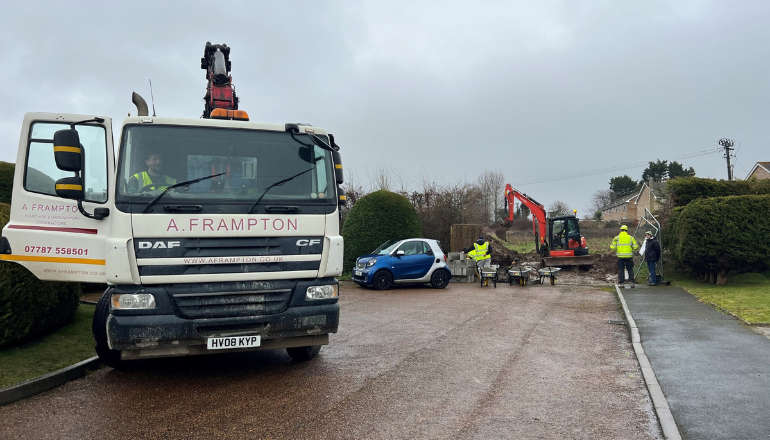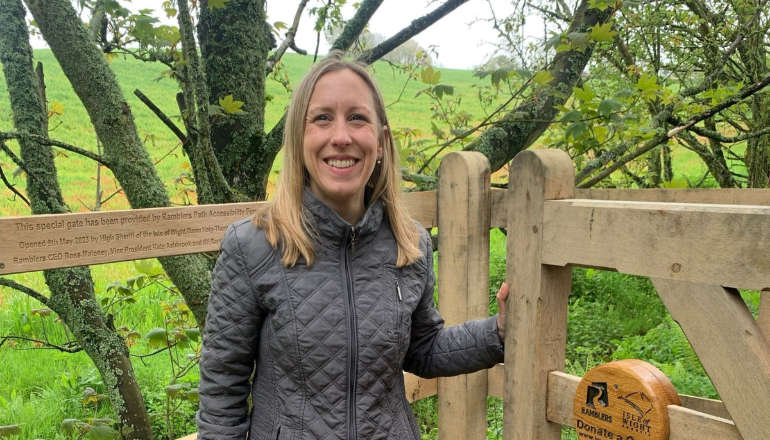
A series of new scam warnings have been issued for the Isle of Wight today (Thursday).
Here are details of what to look out for and how to report the scams if you are a victim.

Action Fraud is receiving large numbers of reports relating to a scam that steals access to a victim’s WhatsApp account.
The scam begins when a criminal gets access to another WhatsApp account which has you listed as a contact.
The criminal, posing as your friend or someone that’s a member of a group you’re in, will then send you seemingly normal messages to try and start a conversation with you.
However, around the same time you will receive a text message from WhatsApp with a six-digit code.

This is because the criminal has been trying to login to WhatsApp using your mobile number.
The criminal will claim they sent you their code by accident and ask you to help them by sending it to them.
Once the criminal has this code, they can login to your WhatsApp account and lock you out.
The criminal will then use the same tactic with your WhatsApp contacts in an effort to steal more accounts and use them to perpetrate fraud.
What can you do?

- Set up two-step verification (2fa) to give an extra layer of protection to your account. Tap Settings > Account >Two-step verification > Enable.
- STOP. THINK. CALL. If a family member or friend makes an unusual request on WhatsApp, always call the person to confirm their identity.
- Never share your account’s activation code (that’s the 6 digit code you receive via SMS)
- You can report spam messages or block a sender within WhatsApp. Press and hold on the message bubble, select ‘Report’ and then follow the instructions
Money transfer request scam

A resident has reported receiving a phone call stating that there had been two transfer requests through the International Monetary Fund from their bank account – and told them to press 1 to discuss.
This is a scam and will involve a long and exhausting conversation with a scammer who will try to convince you that they need to “refund” money to you and obtaining your details to do so.
Clairvoyant scam

A recent report on ITV’s This Morning showed the harm caused by falling for a Clairvoyant scam and included an interview with a carer who fortunately realised the person she cared for was sending cash to a scammer.
However, she didn't realise this before this person had sent over £48,000.
If you care for anyone, whether as a career or as a family member or friend be aware of scams and how they operate.
Go to the National Trading Standards scam team “Friends Against Scams” awareness session and learn how to spot a scam and how to support a victim.

 More Than 70 Driving Offences Dealt With Over Two Days On Isle Of Wight Roads
More Than 70 Driving Offences Dealt With Over Two Days On Isle Of Wight Roads
 Wightlink Technical Problems Lead To Cancellation Of All Fishbourne-Portsmouth Crossings
Wightlink Technical Problems Lead To Cancellation Of All Fishbourne-Portsmouth Crossings
 Contentious Plans For New 7,245 Square Metre Commercial Park Appealed
Contentious Plans For New 7,245 Square Metre Commercial Park Appealed
 Wightlink Crossings Cancelled Due To Engine Issues
Wightlink Crossings Cancelled Due To Engine Issues
 Four New Flats Could Be Built On Island Town's Leafy Residential Road
Four New Flats Could Be Built On Island Town's Leafy Residential Road
 AI Intelligence Reducing Waiting List For Cataract Surgeries On Isle Of Wight
AI Intelligence Reducing Waiting List For Cataract Surgeries On Isle Of Wight
 National Lottery Heritage Fund Awards Blackwater's Naturezones £72,400
National Lottery Heritage Fund Awards Blackwater's Naturezones £72,400
 Eight New Electric Vehicle Charging Bays To Be Built In Ryde
Eight New Electric Vehicle Charging Bays To Be Built In Ryde
 Councillors And Residents Accuse Developer Of Breaching Planning Condition
Councillors And Residents Accuse Developer Of Breaching Planning Condition
 Emergency Crews Called To Blackgang To Tackle Fire In Open
Emergency Crews Called To Blackgang To Tackle Fire In Open
 Island MP Joe Robertson Slams Government Consultation “An Insult To Islanders”
Island MP Joe Robertson Slams Government Consultation “An Insult To Islanders”
 Contentious Plans For New 7,245 Square Metre Commercial Park Appealed
Contentious Plans For New 7,245 Square Metre Commercial Park Appealed
 Island Parish Council With "Dreadful Reputation" Descends Into Shouting Match Over Clerk Resignation
Island Parish Council With "Dreadful Reputation" Descends Into Shouting Match Over Clerk Resignation
 Emergency Services In Rescue Of Casualty In Water Near Ryde Pier
Emergency Services In Rescue Of Casualty In Water Near Ryde Pier
 Motion 'To Gain Full Backing' For Isle Of Wight Farmers Tabled By Chale, Niton And Shorwell Councillor
Motion 'To Gain Full Backing' For Isle Of Wight Farmers Tabled By Chale, Niton And Shorwell Councillor
 Sale Of Former Yarmouth CE Primary School Site Moves Step Closer
Sale Of Former Yarmouth CE Primary School Site Moves Step Closer
 Cowes Supermarket To Have 272 Rooftop Solar Panels Installed
Cowes Supermarket To Have 272 Rooftop Solar Panels Installed
 Bid Made To Convert And Replace Island Village Tea Rooms
Bid Made To Convert And Replace Island Village Tea Rooms
 Cowes RNLI Lifeboat Assists In Catamaran Rescue
Cowes RNLI Lifeboat Assists In Catamaran Rescue
 Crash Causes Structural Damage To Sandown Community Building
Crash Causes Structural Damage To Sandown Community Building


